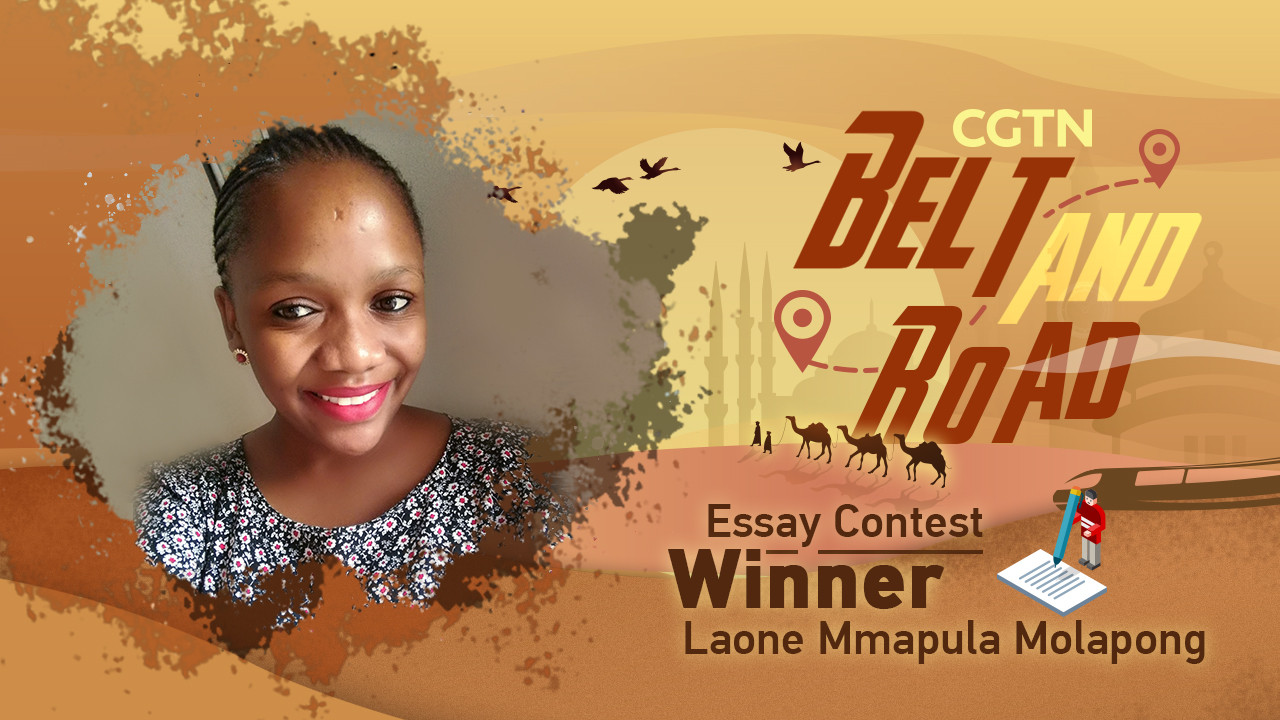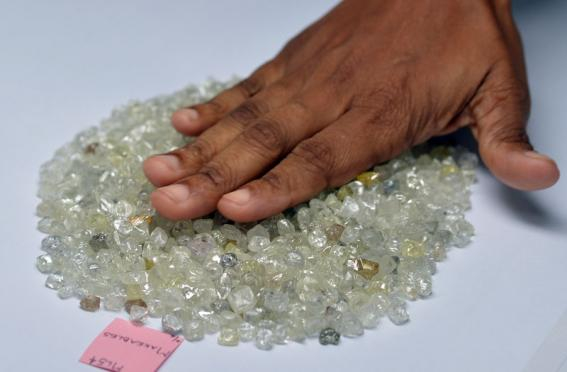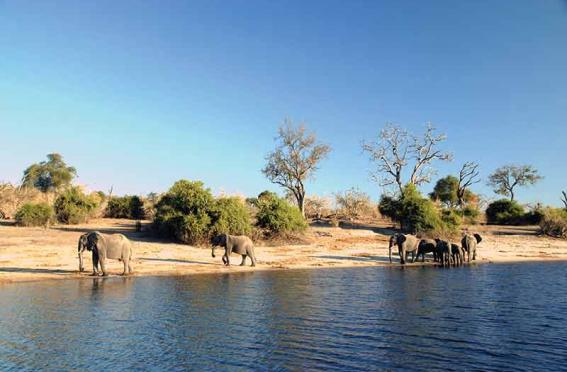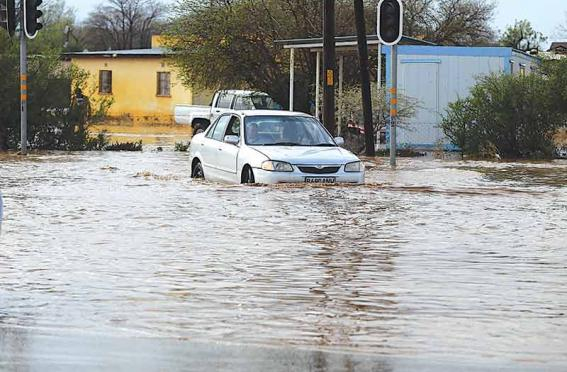
Opinion
07:50, 16-Apr-2019
My story: BRI, a new hope for my Botswana
Updated
18:25, 16-Apr-2019
Laone Mmapula Molapong

Editor's note: The second Belt and Road Forum for International Cooperation will be held in Beijing at the end of this month. Over the past six years, we have heard many voices – mostly political and economic – about the BRI. We also wanted to hear ordinary people sharing their own experiences. Over 100 people took part in the "CGTN Belt and Road Essay Contest," from which we select 18 stories. Here is one of the third-prize winners. The article reflects the author's opinion, and not necessarily the views of CGTN.
I am from a country in southern Africa called Botswana. The population is just over two million.
Botswana is very rich in diamonds and our tourism is the second largest source of export earnings after diamonds as we have one of Africa's most popular and exclusive safari destinations. Botswana is also known for its beef, which we export regionally and to the European Union.
However, with such abundant and diverse resources, we still do not have the best infrastructures, though I may hasten to add that the country has over the years been making significant progress in infrastructure development.

Diamonds in Botswana. /Courtesy of Sunday Standard newspaper
Diamonds in Botswana. /Courtesy of Sunday Standard newspaper
According to the 2017 Transport and Infrastructure Statistic Report by Statistics Botswana, total road network in Botswana measured 31,746.7 km, which represented no change from 2016. The bulk of the roads in Botswana in 2017 were gravel, constituting 34.7 percent of the total road network. Bitumen roads constituted 30.9 percent of the total road network.
The rail network consists of 888 kilometers of track, according to statistics. Reports say Botswana's railway is one of the busiest in Africa, and globally, ranks 91st.
I believe these statistics show that we are still lagging behind, despite the improvements over the years. Our roads, rail, and air transport infrastructure need more improvements, as well as our buildings.
The BRI to me means partnership, building sustainable relations, empowering local and global communities through employment and investments.

Elephants in Botswana. /Courtesy of Sunday Standard newspaper
Elephants in Botswana. /Courtesy of Sunday Standard newspaper
Unemployment is rife in Botswana, especially among the youth and BRI projects could help alleviate poverty. Young people could work with the Chinese people or any other international organizations to train them and transfer skills to them. This will enable them to become independent or instill the spirit of entrepreneurship. It's a chance for small businesses to grow and for established businesses to penetrate the global market and compete at that level.
Botswana could be connected with so many other countries through rail and road to strengthen business opportunities for locals like in Tanzania and Kenya but because of lack of funding all this cannot be done at once.
The southern part of Botswana is dry; there is lack of rainfall and therefore dams that we heavily rely on dry up quickly which ends up leading to water rationing or to a complete shortage of water in some areas.
The BRI can help us source water from some rivers that flow all year round like the Zambezi by building proper infrastructure to take water to the southern part of the country.
Botswana has not yet signed the BRI but hopefully it will sign soon since it is part of the Forum on China-Africa Cooperation. And the BRI could be a boost for more infrastructure development.

A car submerged in water because of the terrible road conditions and drainage system in Botswana. /Courtesy of Sunday Standard newspaper
A car submerged in water because of the terrible road conditions and drainage system in Botswana. /Courtesy of Sunday Standard newspaper
I am in Beijing for the next 10 months and I am on my second month now and I have been fascinated by the good rail and road infrastructure in this city. The transport system is flawless because it is easy to catch a bus, taxi or subway to any destination. The roads and rails have been designed very well.
In my country having your own car is the most convenient thing but sometimes not the best because of traffic jams during peak hours, poor road connectivity, as well as roads that are in a bad state. This is also a problem for the environment because of the pollution that is produced by cars.
The BRI to me also means that those living in rural areas and having a shortage of resources can have the same access as people in cities do. A place like Khawa in the Kgalagadi District in Botswana that does not have potable water and electricity could have these essential resources. Better roads and a transport system could be built to reach their settlements.
I believe the BRI is a solution for a lot of problems that we are facing in Botswana and Africa. For me, the BRI is about a shared better future.
(The author is from Botswana. If you want to contribute and have specific expertise, please contact us at opinions@cgtn.com.)

SITEMAP
Copyright © 2018 CGTN. Beijing ICP prepared NO.16065310-3
Copyright © 2018 CGTN. Beijing ICP prepared NO.16065310-3